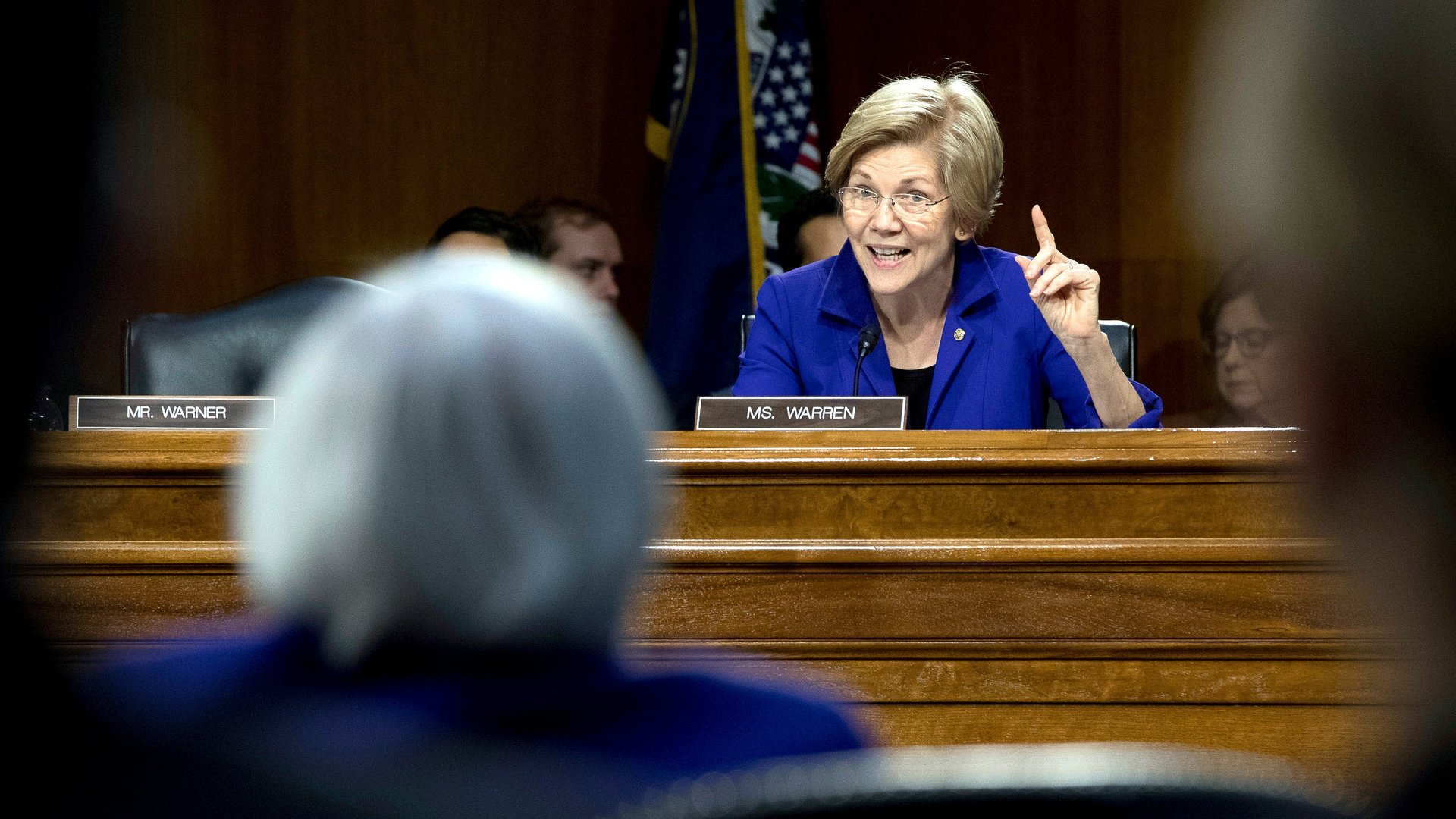Pay attention: This is the trick Wall Street will use to roll back rules that prevent financial collapse
The most important thing governments did to make finance safer after the 2008 crash was to ask banks to get more of their capital from equity, instead of debt. Now, the Trump administration appear to be working to change these requirements, pushing banks toward more profitable—and riskier—ways of doing business.


The most important thing governments did to make finance safer after the 2008 crash was to ask banks to get more of their capital from equity, instead of debt. Now, the Trump administration appear to be working to change these requirements, pushing banks toward more profitable—and riskier—ways of doing business.
At today’s annual monetary policy hearing with the Federal Reserve, senator Elizabeth Warren cited an interview with White House economic advisor (and former president of Goldman Sachs) Gary Cohn about financial regulation:
“Today banks do not lend money to companies,” Cohn told Fox Business on Feb. 3. “Banks are forced to hoard money because they are forced to hoard capital and they can’t take any risks. We need to get banks back in the lending business, that’s our number one objective.”
That’s not quite true. According to the Federal Reserve, US commercial and industrial loans have grown steadily since 2012. At the beginning of February, US banks had more than $2 trillion in loans to businesses on their books, $130 billion more than they had at the beginning of 2016. Furthermore, Cohn’s claim that banks are forced to hoard money instead of lending it is incorrect, too.
Before the 2008 crisis, banks were reliant on debt. US regulators only required banks to have equity equal to 2.5% of their liabilities. To simplify dramatically, your bank could make $100 worth of real estate loans with just $2.5 on hand, borrowing the other $97.5. It’s a great way to make money, as long as those real estate loans perform. But if the bank’s mortgages stop paying out, and the bank can’t afford the interest on its own loans, suddenly it’s insolvent—which means it can’t pay back its federally-insured depositors, either. That happened on a grand scale in 2008, leading to bailouts.
Post crisis, when the US made passed its financial reform overhaul, the rule was changed: Banks are now required to have equity equal to 7% of their assets. But this does not mean they must hoard it. On the contrary, it simply means that when they make a loan, they need to make it with money they have, not money they borrow. This was the point that Warren set out to underscore at the hearing.
“When regulators impose a capital requirement on a bank…does that requirement prevent the bank from lending out that capital?” Warren asked Federal Reserve chair Janet Yellen.
“It’s not a requirement that they take money and stick it in a safe where it can’t be used,” Yellen replied. ”It’s a requirement that they finance the lending that they want to do with a certain amount of capital, and not with debt, so the capital is used to make loans.”
Now, Cohn is probably aware of this, given his long and successful career as a banker. But by claiming that the government is forcing banks to stop making loans, he can make a stronger case for deregulation. And there is some cost to the equity rule: Raising new equity through stock sales can hurt a bank’s stock price, directly impacting the compensation of executives there, while debt financing can result in higher returns—as long as the trades go well.
Today, thanks to the US regulatory push, American investment banks are considered better-capitalized than many of their global rivals, with Yellen characterizing their funding balance as a “competitive advantage.” Warren also noted that, according to the Federal Deposit Insurance Corporation, US banks are enjoying record profits.
“Why go after banking regulations?” Warren asked, offering her own answer: “The president and the team of Goldman Sachs bankers that he has put in charge of the economy want to scrap the rules, so they can go back to the good old days, when bankers could take huge risks and get huge bonuses if they got lucky, knowing that they could get taxpayer bailouts if their bets didn’t pay off.”